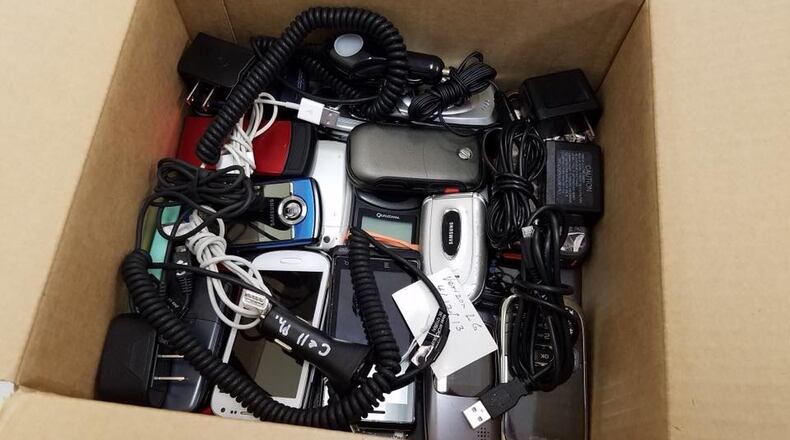Rob Bergquist was 12 years old, and his sister, Brittany, 13, when they overheard a local news story about a soldier serving in Afghanistan who had run up an $8,000 cell phone bill calling home to his family. Bergquist’s own family had two cousins serving in the military they hadn’t heard from recently, so the story hit home.
“We were all glued to the TV and said this is kind of ridiculous,” said Cell Phones For Soldiers CEO Rob Bergquist. “These are people protecting our freedom and they have to pay this large cell phone bill. This isn’t right.”
The family jumped into action. They asked their classmates if they would contribute to helping pay the soldier’s phone bill. The first day, with some lunch money collected, they had $21.
“We did some car washes and bake sales over the next few weeks and ultimately ended up raising enough money to pay off that cell phone bill,” said Bergquist.
With the help of local, regional and some national media, the siblings’ story resonated with Americans.
The family discovered that $8,000 was hardly the largest phone bill soldiers were encountering. “We paid off upwards of a $17,000 cell phone bill for one soldier,” noted Bergquist.
Initially the soon to be nonprofit, Cell Phones for Soldiers, raised money to purchase phone calling cards to send to deployed military personnel. As the infrastructure supporting international calling (Skype, Zoom, WhatsApp, etc.) made calls less expensive, the focus shifted primarily to providing refurbished cell phones and calling plans to low income and homeless veterans.
The Alpharetta based nonprofit funds their efforts by collecting cell phones, tablets, mp3 players and phone accessories. The devices are wiped clean of data and either sold for parts or repurposed to distribute to eligible active military soldiers or veterans along with airtime minutes. Currently CPFS has about 300 veterans using their phone service.
“We have about 25-30,000 phones donated every month,” said Bergquist. “However, about 80% of all donations are what we consider scrap.” Those phones are recycled for precious metals, etc. Close to 20% of phones collected can be resold and only 1-2% can actually be repurposed.
Entering their 20th year of operation, the charity has provided more than 400 million minutes of free talk time to servicemen and women deployed around the world by recycling more than 25 million cell phones reducing the impact on landfills.
Since July 2012, a companion program, Helping Heroes Home, has assisted more than 7,500 returning veterans and their families with one-time emergency funding to alleviate communication challenges as well as physical, emotional and assimilation hardships.
The organization is always seeking good, quality donations and donation sites where the public can drop off their phones. Schools, churches and other groups can host collection drives. Companies who provide cell phones to their employees can donate used phones after upgrading to new devices.
“Cell Phones For Soldiers is a unique way to help our soldiers and veterans. We’re not asking for dollars out of your pocket,” added Bergquist. “A lot of times our donations come from spring cleanings or upgrading your device. We’re not asking for money; we’re asking for something nobody wants anymore.”
Find a drop-off location: www.cellphonesforsoldiers.com.
About the Author
Keep Reading
The Latest
Featured


